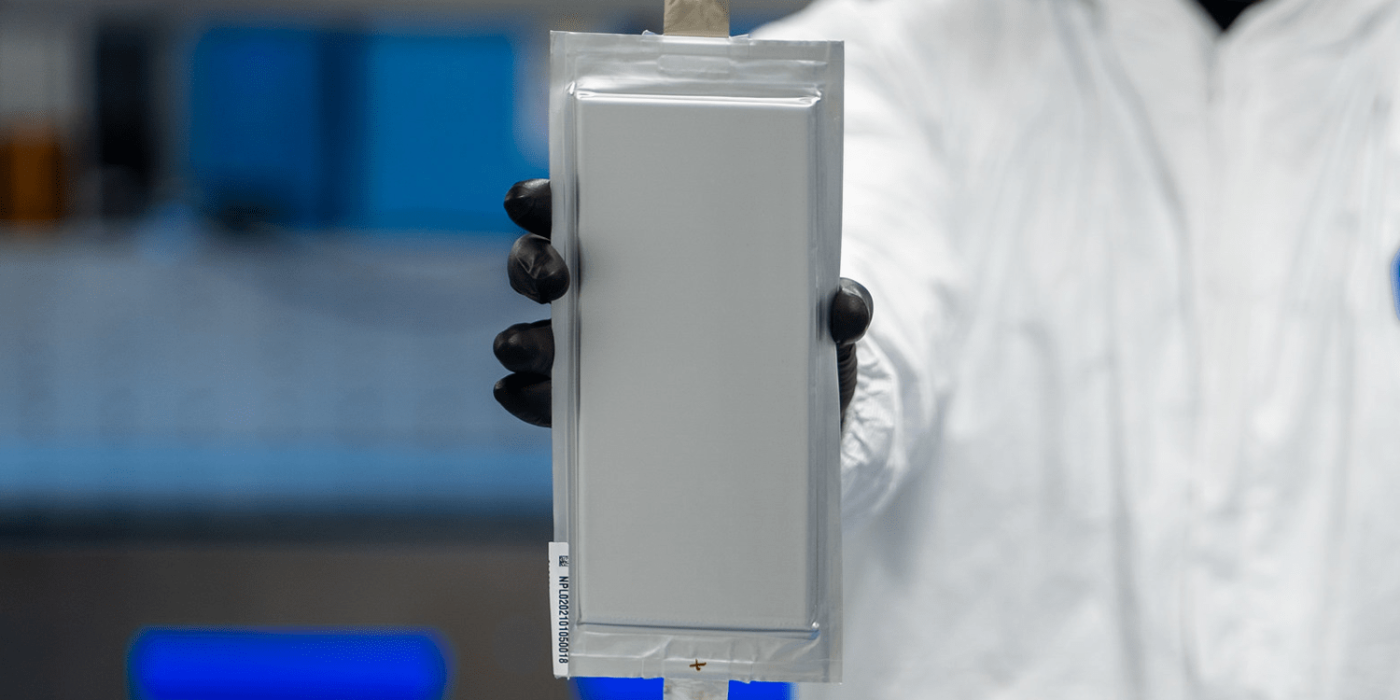Analysis shows battery price drop to $132 per kW/h
Accordingly, battery pack prices for an electric car were only 118 dollars, and at the cell level even the 100-dollar mark was undercut: Here, the analysis by BloombergNEF showed 97 US dollars per kilowatt-hour. Converted, that is 116.60 euros/kWh on market average, 104.20 euros/kWh on pack level in an electric car and 85.70 euros/kWh on cell level.
According to Bloomberg, the average price of $132/kWh includes battery packs for “multiple end uses” – in addition to electric cars, for example, also batteries for electric buses or stationary storage. For 2020, this price was still at 140 dollars/kWh, which means it has fallen by six per cent within a year. A somewhat more historical comparison has other dimensions: in 2010, prices were still at 1,200 dollars/kWh.
In the case of battery prices for electric cars, the ratio between pack and cell level shows that the cells account for 82 per cent of the total price of the battery pack. Two years ago, this ratio was 70 per cent, according to BloombergNEF. Battery experts attribute the change to changes in pack design, such as the introduction of cell-to-pack technology, in which the cells are integrated directly into the battery pack without the (expensive) intermediate step of modules.
BloombergNEF attributes the fact that prices have generally fallen not only to such innovations, but also to the increasing use of cheaper cathode chemistries such as lithium iron phosphate (LFP) instead of cathodes that use more expensive materials such as cobalt and nickel. On average, LFP cells were nearly 30 per cent cheaper than NMC cells in 2021.
The increasing use of LFP cells is particularly evident in vehicles built in China – not only by Tesla, but also by Chinese manufacturers. Consequently, in the regional evaluation, battery packs were cheapest in China at $111/kWh. In the USA they cost 40 per cent more, in Europe even 60 per cent. Bloomberg attributes the latter to the “relative immaturity of these markets”, but also to the lower quantities and “tailor-made orders”.
It is not only nickel and cobalt that have seen prices rise recently. The cheaper LFP cells are also dependent on raw material prices, in this case lithium carbonate. Chinese battery cell manufacturers have raised their LFP prices by ten to 20 per cent – just since September. In general, the impact of rising commodity prices and increased costs for key materials such as electrolytes have put pressure on the industry in the second half of the year.
“We estimate that on average the price of an NMC (811) cell is $10/kWh higher in the fourth quarter than it was in the first three months of the year, with prices now closing in on $110/kWh,” said James Frith, unfortunately of energy speciality research at BloombergNEF. “This creates a tough environment for automakers, particularly those in Europe, which have to increase EV sales in order to meet average fleet emissions standards. These automakers may now have to make a choice between reducing their margins or passing costs on, at the risk of putting consumers off purchasing an EV.”
100 dollars/kWh could be reached within two years
Nevertheless, based on historical trends and the results of the current battery price survey, BloombergNEF expects average battery pack prices to fall below the $100/kWh mark by 2024. However, with higher commodity prices from the second half of the year, pack prices could initially rise back to $135/kWh – and depending on how long this price trend continues, the cracking of the $100 mark could be delayed by up to two years.
Since, according to BloombergNEF, “around this price point” carmakers will be able to manufacture and sell electric cars at the same margins for the same price as internal combustion engine vehicles, the price around $100/kWh takes on special significance. Or as BloombergNEF puts it: “This would impact EV affordability or manufacturers’ margins and could hurt the economics of energy storage projects.”
With reporting by Sebastian Schaal, Germany.





0 Comments